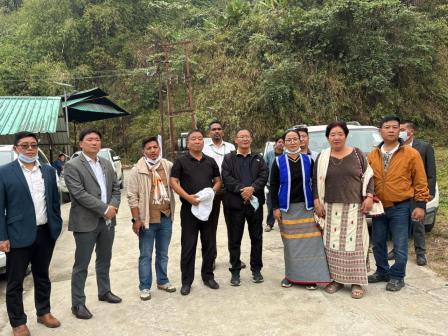-
COPU reviews state PSUs in second sitting
-
CM stresses on strong internal security, tech-driven policing
-
Cabinet approves proposals aimed at strengthening governance, enhancing public…
-
Body found hanging at bus stop with limbs tied sparks…
-
Mein chairs pre-budget consultative meeting with community based organisations
-
District level training on Census of India 2027 begins at…
-
WCD Minister reiterates commitment to safeguarding rights, dignity of…
-
Woman loses life in massive fire, two children seriously injured
-
 UA Minister inspects burial ground, focuses on maintenance and improvement
UA Minister inspects burial ground, focuses on maintenance and improvement
-
 UA Minister inspects burial ground, focuses on maintenance and improvement
UA Minister inspects burial ground, focuses on maintenance and improvement
In the pulsating world of Indian advertising, false ads are notoriously common and easy to get away with. It’s not just the smaller firms who bluff their way, peddling everything from weight-loss drugs to libido-enhancing potions on late-night TV. Big brands are an equal culprit, data reveals.
In an effort to clampdown on misleading advertisements, a parliamentary panel last year suggested that celebrities be held accountable for the brands they endorse, especially if an advertisement in which they feature is found to be misleading.
Misrepresentation of a product, especially of food product, should be taken very seriously, considering the influence of celebrities and high networth individuals and companies. The existing laws are not deterrent enough to discourage manufacturers or publishers from using such personalities for misleading ads.
Each year the world consumer’s day is observed with much dedication to raise levels of awareness among consumers. While several aspects related to the topic are raised, little attention has been giving to address the menace of misleading advertisements which is affecting consumers in a huge way.
The Department of Legal Metrology & CA must be commended for its many IEC activities – quite visible on print media especially on important days and by launching the mini marathon, it has generated traction among the masses on consumer awareness. However, it needs to widen its reach and also aware citizens regarding misleading advertisements.
It must keep an eye on, telecasting, airing and publishing misleading advertisements such as 'magic oil' for baldness, ‘miracle cure’ for sexual disorders etc, to protect consumers' interest. Monitoring such advertisements across different mediums is a difficult task. So, participation of consumers and NGOs is needed. But whom do we approach is another big question.
One of the biggest challenges for the LM & CA department is that while it has rigorously made people aware of their rights, they have not informed about where to approach when faced with such dilemma. This is the situation in the capital Itanagar where focus is the most, so one can wonder the situation elsewhere.
Apart from sensitising the masses, focus must be on strengthening the consumer movement and developing consumer activists at the grassroots level through intensive training, capacity building and orientation programmes on consumer protection and rights.

Kenter Joya Riba
(Managing Editor)She is a graduate in Science with post graduation in Sociology from University of Pune. She has been in the media industry for nearly a decade. Before turning to print business, she has been associated with radio and television.
Email: kenterjoyaz@easternsentinel.in / editoreasternsentinel@gmail.com
Phone: 0360-2212313

